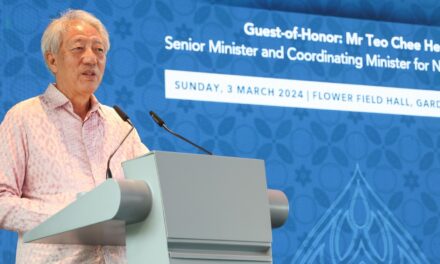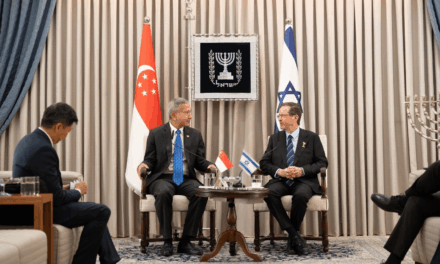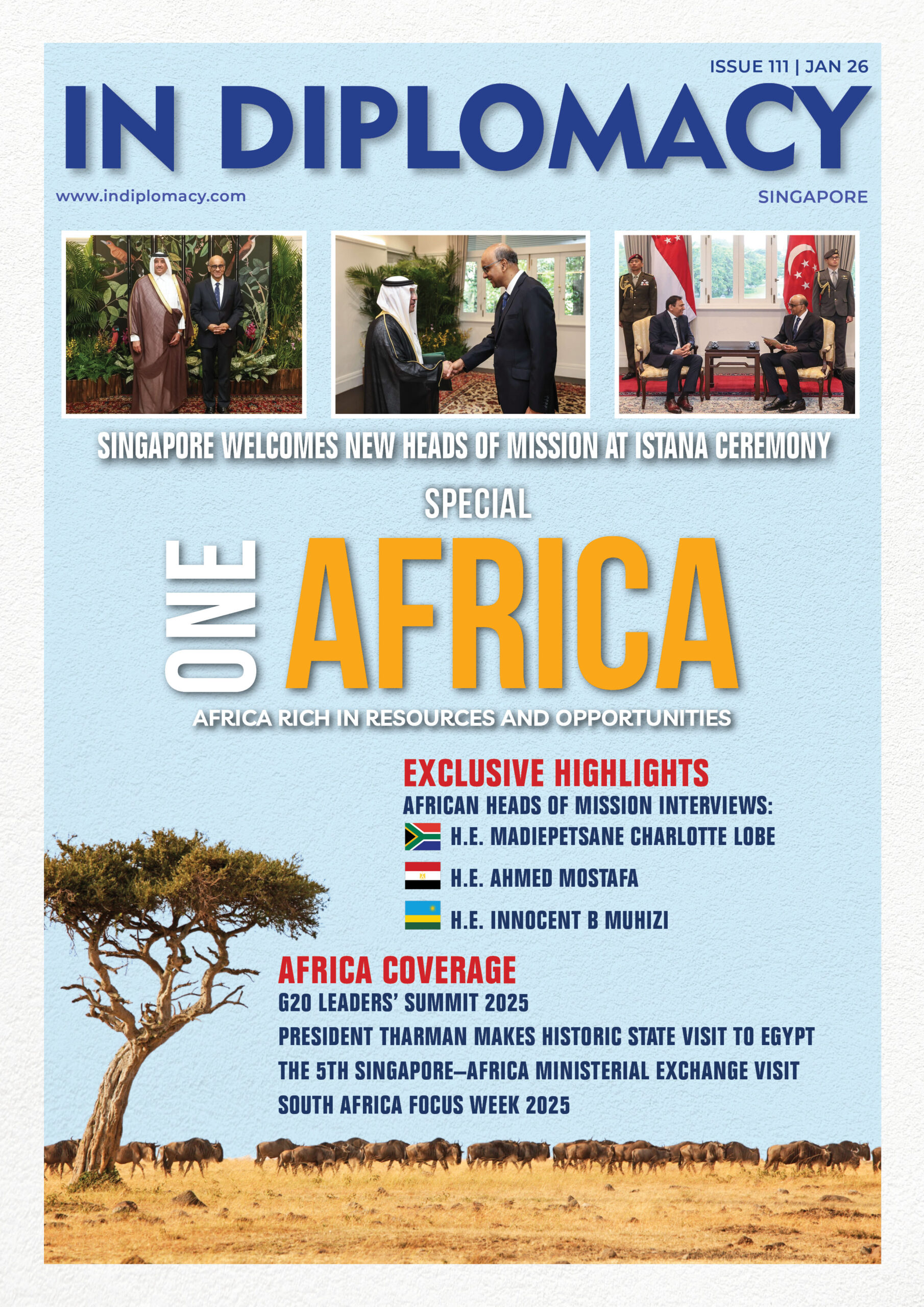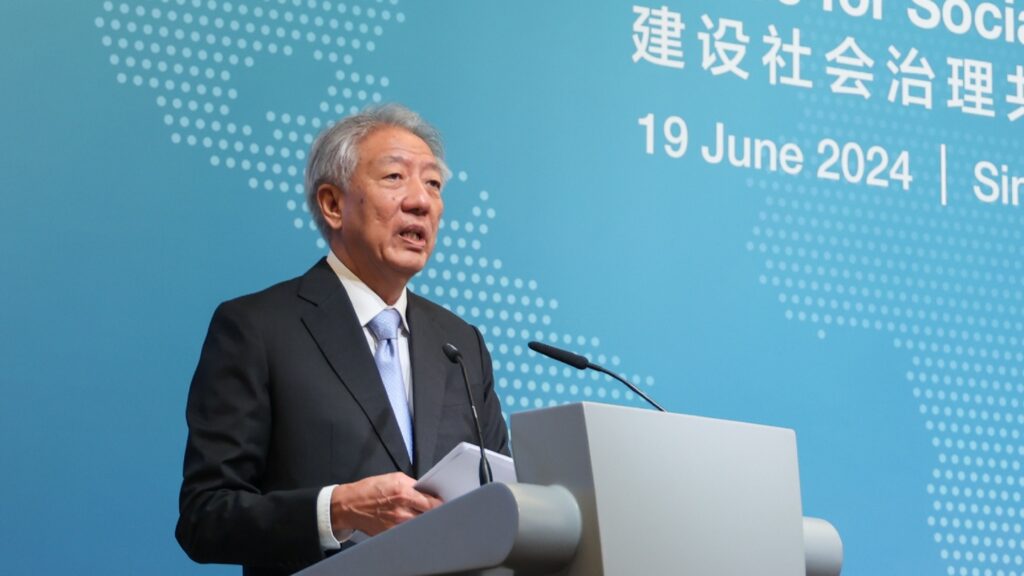
Senior Minister Teo Chee Hean highlights Singapore’s approach to social harmony during the opening ceremony of the 4th Singapore-China Social Governance Forum on June 19, 2024.
Senior Minister and Coordinating Minister for National Security Teo Chee Hean addressed the opening ceremony of the 4th Singapore-China Social Governance Forum on June 19, 2024. His keynote speech, titled “Opportunities for All, Where Everyone has a Stake – Singapore’s Approach to Social Harmony,” emphasized the principles behind Singapore’s successful social governance.
Teo warmly welcomed His Excellency Chen Wenqing, Member of the Political Bureau and Secretary of the Political and Legal Affairs Commission of the CPC Central Committee of China, and his delegation to Singapore. He also acknowledged the presence of His Excellency Masagos Zulkifli, Minister for Social and Family Development of Singapore, and His Excellency Yin Bai, Secretary-General of the Political and Legal Affairs Commission of the CPC Central Committee of China.
Highlighting the importance of the forum, Teo mentioned that it provides a crucial platform for exchanging perspectives on social governance, enabling both countries to adapt useful lessons to their unique contexts. He noted the shared experiences of rapid economic growth and the resulting changes in social structures and workforce in both China and Singapore, emphasizing the need for cooperation to address common challenges such as rising citizen expectations and aging populations.
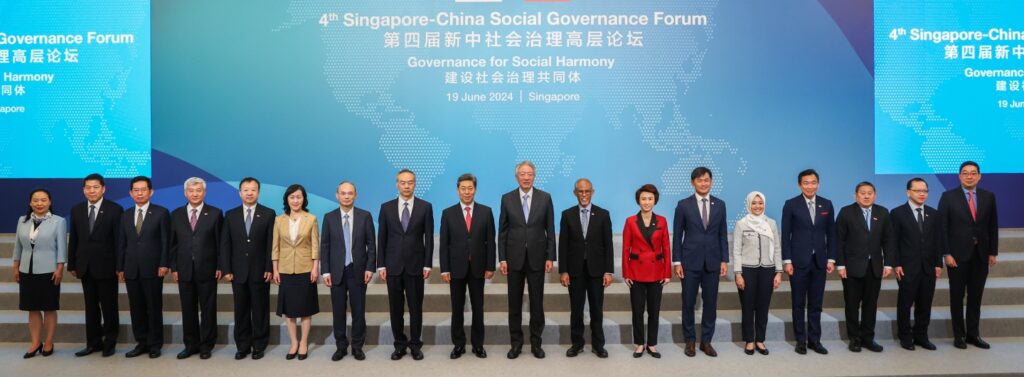
Teo outlined Singapore’s approach to social harmony, focusing on three key areas: managing race and religion, fostering strong labor relations, and promoting homeownership and local community engagement.
Firstly, he discussed Singapore’s strategy for managing race and religion. With a racially diverse population, Singapore ensures equal treatment for all races and religions. Teo highlighted the adoption of English as the common language, the implementation of Group Representation Constituencies (GRCs) to ensure minority representation in Parliament, and the reserved election for the Elected Presidency. He also emphasized the importance of institutions like the Inter-Religious Organisation (IRO) in fostering mutual understanding and managing interfaith tensions.
Secondly, Teo spoke about Singapore’s unique tripartite partnership between workers, employers, and the government in labor relations. He illustrated how the National Wages Council (NWC) helps forge national consensus on wage matters, ensuring fair distribution of economic growth benefits and protecting jobs during difficult times. This partnership, he noted, is crucial for maintaining industrial peace and fostering a sense of ownership among workers.
Lastly, Teo highlighted Singapore’s homeownership policy as a cornerstone of its social governance. By providing affordable public housing and encouraging homeownership, Singapore has fostered a sense of rootedness and collective identity among its citizens. He pointed out that nearly 90% of Singaporeans own their homes, one of the highest rates in the world. This policy, coupled with community spaces and grassroots organizations, promotes social cohesion and active citizen participation in local communities.
Source – PMO

